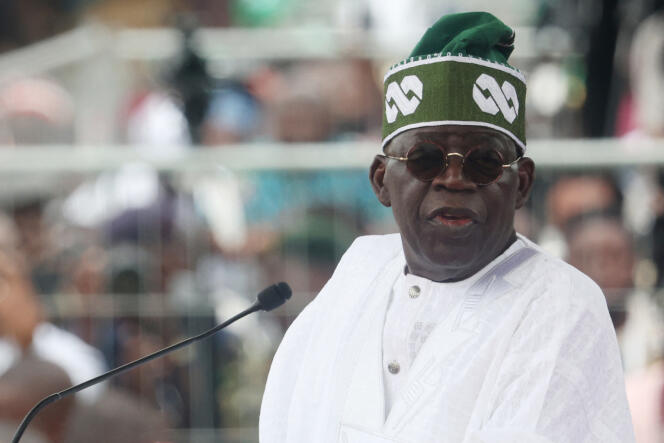
Nigeria, whose president Bola Tinubu currently heads the Economic Community of West African States (ECOWAS), is maneuvering to force the coup leaders to back down. They have been holding Niger's president, Mohamed Bazoum, prisoner since Wednesday, July 26. On Sunday, the subregion's leaders gave a one-week ultimatum to Abdourahamane Tiani's men for a "complete return to constitutional order." Tiani is the former head of the presidential guard and president of the National Council for the Safeguard of the Homeland (CNSP). The chiefs of staff of the ECOWAS countries are meeting in Abuja until Friday to "work on military strategy."
Benjamin Augé, a Nigeria specialist and researcher at the French Institute of International Relations (IFRI), looks at the major role this country is currently playing in this crisis.
Nigeria appears to be on the front line against the coup leaders in Niger. What's behind this engagement?
Nigeria is the dominant political and economic power in West Africa. It borders Niger, and the two countries share a common language, Hausa, which is spoken by 80 million people in northern Nigeria and Niger. Its new president, Tinubu, came to power on May 29. He has been heading ECOWAS for less than a month. His inaugural speech at the head of the regional organization focused in particular on the need to put an end to military coups in the region.
His credibility, even from a domestic political point of view, will depend on what he manages to do after the coup in Niger. He has been under a great deal of pressure since the end of gasoline subsidies in his country in June. Tinubu has taken a very firm stance against the coup leaders. Drastic economic sanctions have been put in place. But if the junta in Niamey, the capital of Niger, doesn't falter and he finally gives up the military option, this leaves him with few ways out of the situation.
The sultan of Sokoto, an influential cleric in Nigeria and himself a former soldier, is part of the ECOWAS delegation led by former Nigerian president Abdulsalami Abubakar. The delegation is due to visit Niamey. What role can he play in this crisis?
He is the leading Sunni religious authority in Nigeria, but it is not certain that his influence on Niger's military is decisive. He is more respected than feared.
Nigeria's army chief, General Christopher Musa, reiterated on Monday that his troops were ready to intervene. But do they have the means to do so?
In the 1990s, the Nigerian army was deployed in Liberia and Sierra Leone [via ECOWAS mandates], and more recently in Gambia. But the situation in Niger is very different. There are many unknowns, and the many failures of law enforcement on Nigerian soil over the past 20 years suggest that ironclad toughness is unlikely. Among the many failures are violence, industrial-scale crude oil theft in the Niger Delta and an explosion of banditry in the northwest.
Furthermore, the team in charge in Abuja has only just been appointed, and the government has not yet been formed. Its future members are currently before the Nigerian Senate for approval. For example, there is no minister of defense yet. Only the army chiefs have been appointed, along with the national security adviser: Nuhu Ribadu, the country's chief financial prosecutor.
It should be pointed out that Tinubu is not a military man, unlike several of his predecessors since the return to democracy. Among these predecessors are Olusegun Obasanjo [1999-2007] and Muhammadu Buhari [2015-2023]. It is in Tinubu's interest to show that he can be decisive on defense issues, despite his lack of experience in this field.
If ECOWAS and Nigeria decide to use force when the ultimatum expires, would Nigeria's army be ready to fight Niger's army, which also has many Hausa in its ranks?
It's not an easy question to answer, but it raises another one. Will the Nigerien Armed Forces (FAN) be fully united to fight the Nigerian armed forces?
During his first term in office, Emmanuel Macron became very close with Nigeria, where he interned at the French embassy in Abuja in 2002. Can he now hope to capitalize on this closeness?
If the Nigerian army decides to intervene under a mandate from ECOWAS and the African Union (AU), I don't think it will do so without consulting the two key military players in Niger: the United States and France. Paris is well aware that it cannot be directly involved in resolving this crisis. France is therefore counting heavily on Nigeria. France's partnership has never been as strong as it has been since Emmanuel Macron's election.